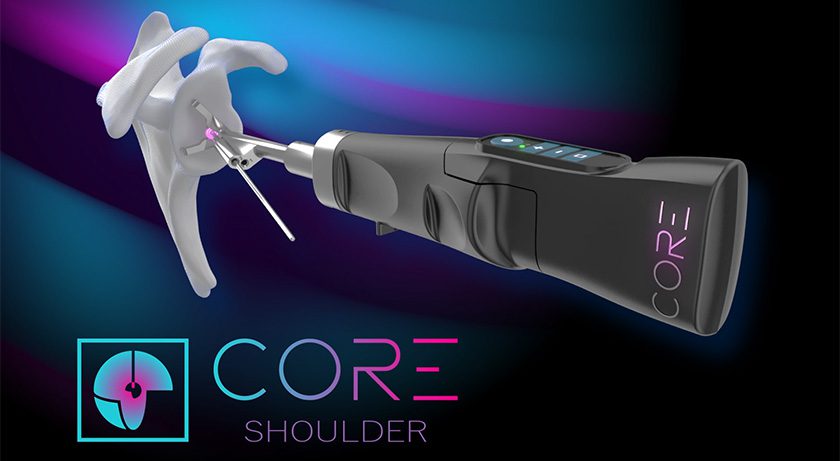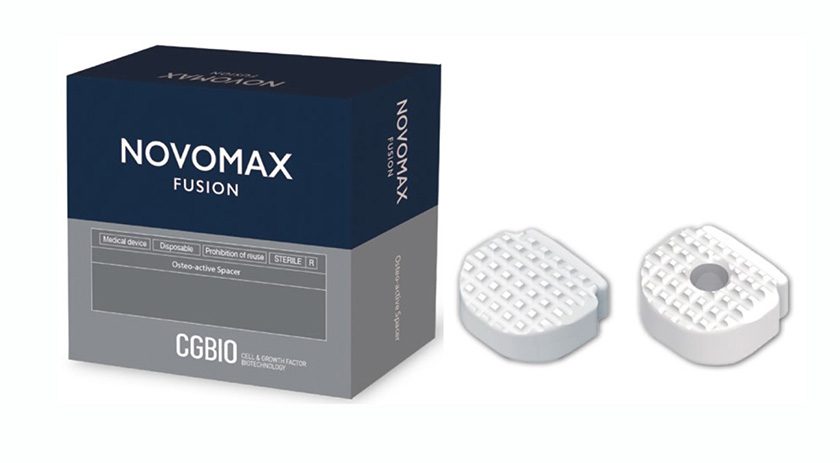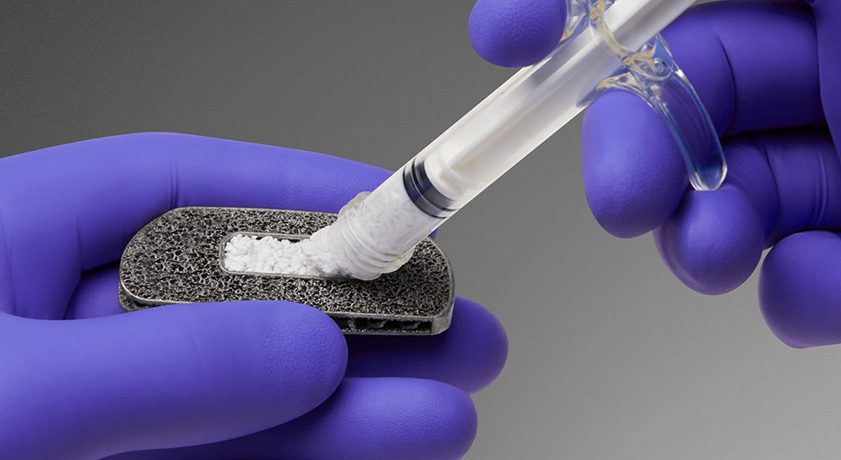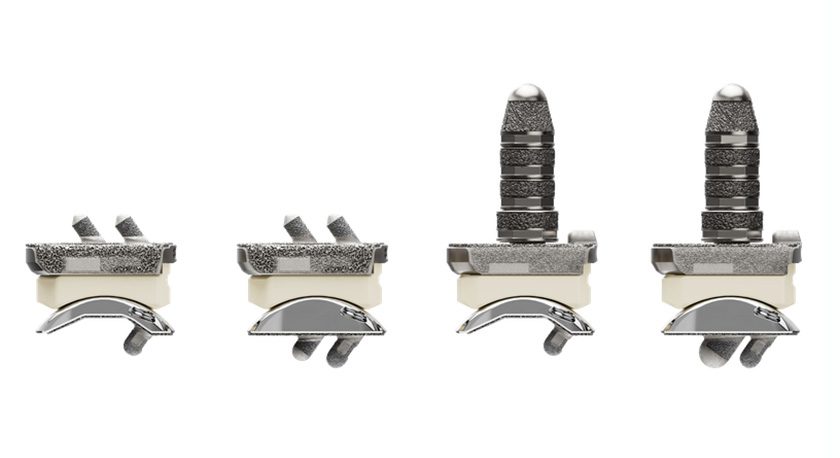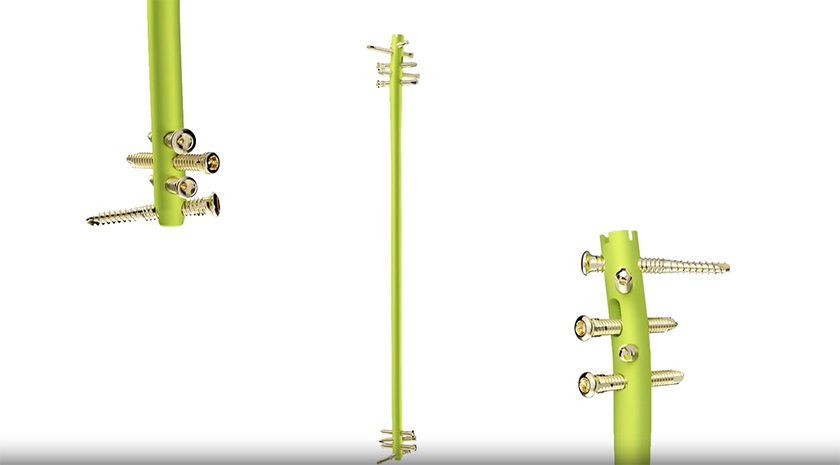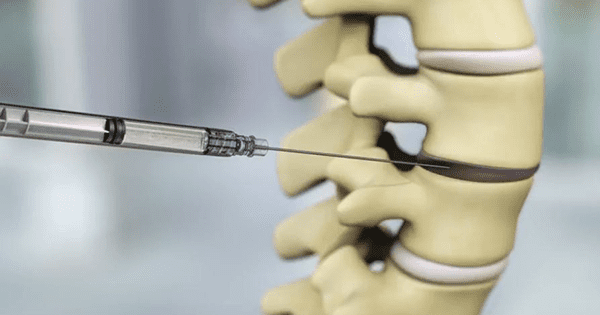

 Copy to clipboard
Copy to clipboard 
DiscGenics announced positive two-year clinical data from its first-in-human clinical study of Injectable Discogenic Cell Therapy (IDCT), an allogeneic discogenic progenitor cell therapy for lumbar degenerative disc disease (DDD).
In the prospective, randomized, double-blind, vehicle- and placebo-controlled, multicenter clinical study, high dose IDCT met the primary safety and efficacy endpoints and demonstrated statistically significant improvements in low back pain, function, quality of life and disc volume, suggesting a regenerative effect following a single injection into the intervertebral disc.
Key findings include:
- The primary safety endpoint of the study was achieved with no subjects in the IDCT treatment groups experiencing treatment-emergent serious adverse events.
- Clinically meaningful, statistically significant improvements in low back pain, function and quality of life were observed by 12 weeks following intradiscal injection with high dose IDCT in subjects with symptomatic lumbar disc degeneration.
- These clinical improvements were sustained at six months, one year, 1.5 years and two years post-injection.
- In the low dose IDCT group there was a trend in improvement of clinical outcomes, though inconsistent. While the vehicle control group (n=10) resulted in some pain relief, it was not associated with clinically meaningful improvements in function or quality of life. No consistent or durable statistically significant or clinically meaningful outcomes were observed in the saline placebo control group.
- Statistically significant improvements in disc volume were also observed in the high dose IDCT group. In contrast, changes in disc volume for the control groups decreased, although not at a statistically significant level.
- Importantly, the high dose IDCT treatment group was the only group in this study to show a decrease in both opioid and nonsteroidal anti-inflammatory drug use.
“We are very encouraged by the final two-year results of this study,” said Flagg Flanagan, Chief Executive Officer and Chairman of the Board for DiscGenics. “The significant and durable improvements we saw in pain, function, quality of life, disc volume, and concomitant pain medication usage are critical indicators of the potential for IDCT to change the paradigm of care for patients with DDD.”
DiscGenics is scaling up its in-house manufacturing capabilities so it will have cells ready for future application, pending the FDA’s review of the data.
Source: DiscGenics
DiscGenics announced positive two-year clinical data from its first-in-human clinical study of Injectable Discogenic Cell Therapy (IDCT), an allogeneic discogenic progenitor cell therapy for lumbar degenerative disc disease (DDD).
In the prospective, randomized, double-blind, vehicle- and placebo-controlled, multicenter clinical study, high...
DiscGenics announced positive two-year clinical data from its first-in-human clinical study of Injectable Discogenic Cell Therapy (IDCT), an allogeneic discogenic progenitor cell therapy for lumbar degenerative disc disease (DDD).
In the prospective, randomized, double-blind, vehicle- and placebo-controlled, multicenter clinical study, high dose IDCT met the primary safety and efficacy endpoints and demonstrated statistically significant improvements in low back pain, function, quality of life and disc volume, suggesting a regenerative effect following a single injection into the intervertebral disc.
Key findings include:
- The primary safety endpoint of the study was achieved with no subjects in the IDCT treatment groups experiencing treatment-emergent serious adverse events.
- Clinically meaningful, statistically significant improvements in low back pain, function and quality of life were observed by 12 weeks following intradiscal injection with high dose IDCT in subjects with symptomatic lumbar disc degeneration.
- These clinical improvements were sustained at six months, one year, 1.5 years and two years post-injection.
- In the low dose IDCT group there was a trend in improvement of clinical outcomes, though inconsistent. While the vehicle control group (n=10) resulted in some pain relief, it was not associated with clinically meaningful improvements in function or quality of life. No consistent or durable statistically significant or clinically meaningful outcomes were observed in the saline placebo control group.
- Statistically significant improvements in disc volume were also observed in the high dose IDCT group. In contrast, changes in disc volume for the control groups decreased, although not at a statistically significant level.
- Importantly, the high dose IDCT treatment group was the only group in this study to show a decrease in both opioid and nonsteroidal anti-inflammatory drug use.
“We are very encouraged by the final two-year results of this study,” said Flagg Flanagan, Chief Executive Officer and Chairman of the Board for DiscGenics. “The significant and durable improvements we saw in pain, function, quality of life, disc volume, and concomitant pain medication usage are critical indicators of the potential for IDCT to change the paradigm of care for patients with DDD.”
DiscGenics is scaling up its in-house manufacturing capabilities so it will have cells ready for future application, pending the FDA’s review of the data.
Source: DiscGenics

You are out of free articles for this month
Subscribe as a Guest for $0 and unlock a total of 5 articles per month.
You are out of five articles for this month
Subscribe as an Executive Member for access to unlimited articles, THE ORTHOPAEDIC INDUSTRY ANNUAL REPORT and more.
JV
Julie Vetalice is ORTHOWORLD's Editorial Assistant. She has covered the orthopedic industry for over 20 years, having joined the company in 1999.


